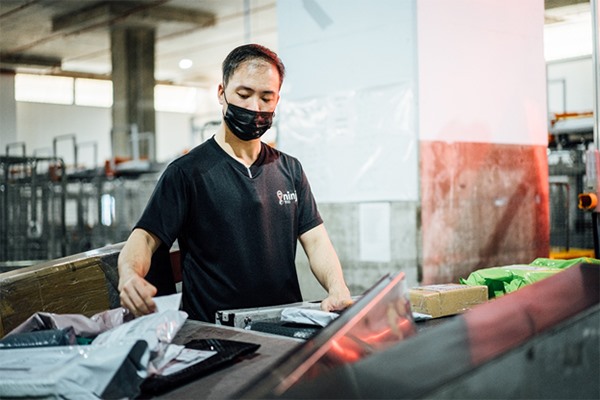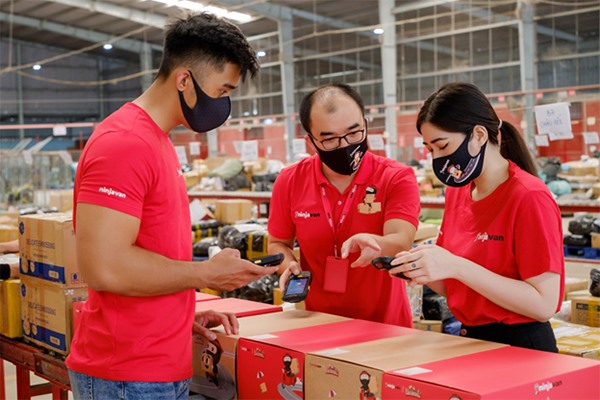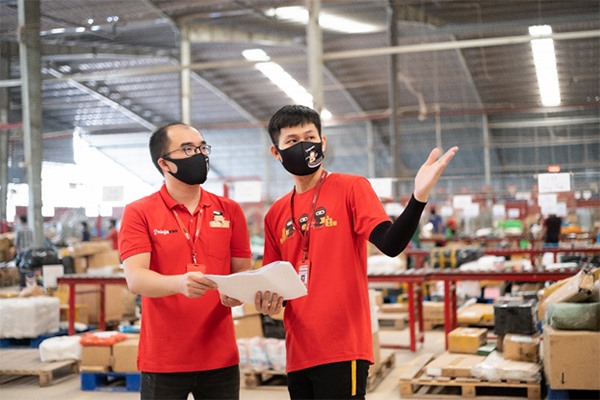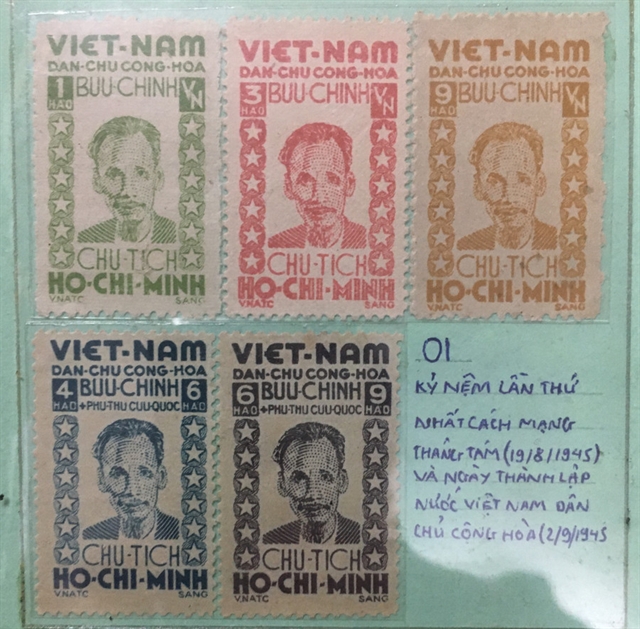

In the intense competition of e-logistics, victory belongs to tech-enabled enterprises with financial muscle.
E-logistics industry is about technology upsurge
The World Economic Forum’s analysis indicates that digitalisation in logistics could unlock US$1.5 trillion of value for logistics players and a further US$2.4 trillion worth of benefits over the next decade globally.
In Việt Nam, the e-logistics industry has shown clear signs of growth over time and is forecasted to reach an annual average growth of 42 per cent until 2022. A huge part of this growth has also been attributed to the increasing digitalisation and technological investment of the industry.
The pro-longed impacts of the COVID-19 pandemic, strong customer centricity, rising e-commerce complexity, unsatisfied demand for direct-to-consumer, and the potential risk of financial peril are putting e-logistics providers under acute and growing pressure to maximise the intelligent use of technology to get an edge in Việt Nam, where technology adoption and infrastructure improvements are highly embraced.
Ninja Van’s warehousing management systems
Some of the technologies driving this trend include cloud computing, automation, big data and machine learning, AI, blockchain and IoT, which offer the latest powerful functionalities to platform solutions, route planning, warehouse and transport management systems. These digital innovations help slash costs and provide better visibility of parcels which vastly improves delivery quality, productivity and speed of operations.

|
Ninja Van’s staff sort out parcels
As “digital fitness” becomes a prerequisite for success, especially in the costly last-mile delivery segment, tech-enabled logistics start-ups have enjoyed more competitive advantages in leveraging technology to carve out the more lucrative elements of the value chain. Ninja Van, for example, has transformed itself to become the largest and fastest-growing billion-dollar express logistics start-up in Southeast Asia in just seven years, thanks to its commitment to relentless innovation. While its cloud technology provides flexibility and scalability, the adoption of a microservices technology architecture has put this company ahead of the tech race in Việt Nam and the region.
Ninja Van’s technological advantages help define the industry’s future
“Ninjas” are commonly known for being quick, skillful, and having the energy to deal with any issues. So is Ninja Van when it comes to its innovative approach.
When entering the Vietnamese market in 2016 to address the country’s most pressing supply chain challenges and innovate the traditional style of logistics, Ninja Van already differentiated itself from the rest of the pack through real-time traceability and a reverse fleet management system. Back then, there was no way to reach out for help to expedite delivery time as there was no real-time visibility. Customers would get a notification three days after delivery, and logistics companies would scratch their heads for solutions to expand capacity during peak seasons without watching the additional drivers sit idle when things are back to normal. So, Ninja Van’s debut technologies were then a real game-changer.

|
The market has soon caught up, and now – at a time when investments in the logistics tech startups are higher – Ninja Van once again proves itself to remain best-in-class in the market by bringing technology to the core. “We are committed to the success of our business partners, so investing in technology is a no brainer to ensure a hassle-free shipping experience for all users and build upon the business momentum we have achieved”, said Le Van Quoc Khanh, COO of Ninja Van Vietnam.
Starting from 15,000 orders per month in 2018, the company now has more than 300,000 orders per day. Ninja Van is now among the top three strategic partners for all major platforms in Việt Nam including Shopee, Lazada, Tiki and Sendo.
While access to capital to acquire efficiency-enhancing technologies has posed challenges to the majority of e-logistics companies, Ninja Van has secured US$578 million in an e-funding round and will allocate part of the reserve towards infrastructure and technology systems to support the ecosystems for small and retail customers in Việt Nam, boosting the quality and consistency of its operations in this important market.

|
Specifically, Ninja Van aims to upgrade its automated sorting system to reach a capacity of two million packages in five major hubs to shorten delivery time. The processing time will increase to hundreds and thousands of orders per hour per sorter as compared to 150 - 200 orders currently. To redefine what makes a delightful delivery by prioritising shipper and recipient satisfaction, the company will launch a new version of its' web platform and mobile app in Q4/2021 to provide customers with real-time visibility of their parcel journey and better control of their financial performance.
Also, Ninja Van is looking at adjacencies to further cement its leading position in the sector. The company launched Ninja Direct, which helps Vietnamese sellers improve sourcing capabilities, and Ninja CrossBorder, which enables Vietnamese manufacturers to reach out to buyers globally. These efforts promote the digitisation of logistics and cross-border e-commerce transactions in Việt Nam.
COO Quoc Khanh added, “While technology constantly provides us with a winning chance to steal a march on our competitors, it is also a constant evolution, for us to build more sustainable and agile capabilities, changing the way we add value to our partners.” Ninja Van is amongst the Financial Times’s top 15 fast-growth enterprises in the Asia-Pacific region in 2021.





 Cusson Leung, Chief Investment Officer at KGI; James Chu, Chairman at KGI Securities Investment Advisory; James Wey, Head of International Wealth Management at KGI; Kenny Wen, Head of Investment Strategy at KGI)


, Nicholas Bongsosartono (President Director, DHL Global Forwarding Indonesia), Matthias Gehrsitz (Managing Director, DHL Supply Chain Indonesia))
